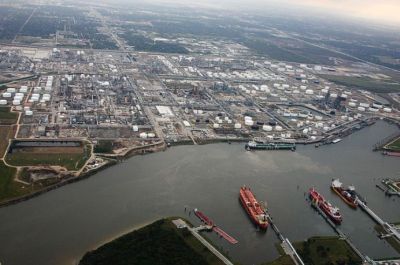
Area Congressmen Gene Green and Pete Olson emphasized that the Port of Houston and Houston Ship Channel are the key to boosting growth of the Houston region, as they addressed the Petrochemical and Maritime Outlook Conference last week in Pasadena.
They urged that all area entities work together to achieve an even greater global reach as they provided updates on federal government activity and legislation that could restrict or benefit the area’s growth.
Both they and other speakers pointed out how success for the region had come from working together.
Green emphasized the importance of the Port of Houston and told how federal funding had dropped and how more money is needed for dredging to keep the depth at 45 feet.
“But what is more important is when the Panama Canal expands, we need to get the Port, Barbours Cut and the Houston Ship Channel to 50 feet to be competitive with other ports. We have been blessed here with the petrochemical complex and energy industry,” he told the crowd of about 500 at the Pasadena Convention Center.
But, he continued, the area should keep in mind that “every other port in the Eastern United States wants to get to 50 feet so they, too, can be competitive.”
“What we produce along the Ship Channel is so important to our country, and to our jobs and tax base,” Green said, pointing out that “we can’t do without aviation fuel,” for example, stressing just how important the area’s refineries that make the special fuel are.
“Some 250,000 people work on the docks of the Port of Houston and in the chemical plants. Multiply that by any number and you see the economic generators. So what we do in Southeast Texas is not only important here and to Texas, but it acts as an economic generator,” Green added.
GATEWAY
Olson, who works with Green on the Houston Energy, agreed with Green that “the Houston Port region is the gateway of international commerce for Texas, the Gulf Coast Regions and the U.S.
“The Port of Houston is the second largest port in the U.S. and connects millions of Americans to the global market.”
“Our maritime industry has a tremendous impact on our nation. Activity at our ports is responsible for hundreds of thousands of jobs and billions of dollars in economic benefit. And Houston has earned the reputation as the energy capital of the world and a center of international trade.”
However, Olson sees challenges ahead.
“The private sector is not making the needed investments to grow our economy due to unnecessary regulatory burdens and policies that foster economic uncertainty…In order for this region to maintrain its status as a global import-export center, we must eliminate the red tape that is stifling economic growth and reducing our competitiveness in the global market.
IMPORTANT ROLE
“Congress has an important role in eliminating barriers to growth and job creation.”
Port of Houston President Alec Dryer talked of increasing capacity at the Port, the continued build-out of the Bayport Terminal and plans to update some of its older facilities.
He opened his speech by noting that “we do things bigger in Texas,” pointing out that the Houston Ship Channel was one mile longer than the Panama Canal. Other points he shared about the Port of Houston:
It is the largest steel port in the U.S. and the second largest in the world;
It is the largest petrochemical port in the U.S.;
Some 8,000 vessels will arrive here this year;
About 200,000 barge movements will be recorded.
Dredging costs $40 to $50 million each year.
“The good news is we are getting more allocation (for dredging) than any other area. The bad news is it isn’t enough.”
The Port, he believes, will become a more important part of U.S. commerce in the coming years. Meanwhile, he thinks the Port needs
To build a new container facility
To rebuild Barbour’s Cut;
Be able to move out of the area faster.
Currently, he said the Port is reinvesting $200,000 in new facilities and without that investment “we would not be able to compete.”
His goal is to make the Port an even more important part of U.S. commerce in the coming years and be vibrant for years to come.
State Sen. Mike Jackson introduced the congressmen and State Rep. Ken Legler introduced Harris County Judge Ed Emmett, who suggested that all be aware of possible unintended consequences in the future.
“No one expected to have refineries up and down the Ship Channel,” he said, or 9-11 and how it has changed the way we do business.
Or the wonderful interstate highway system which served a great need but put many small businessses along the old routes out of business.
By Mary Alys Cherry (yourhoustonnews)
We use cookies to improve your experience. By continuing to use our site, you accept our Cookies, Privacy Policy,Terms and Conditions. Close X